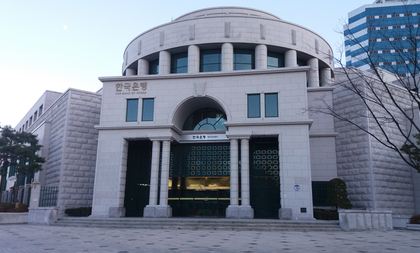South Korea faces 18th-highest US tariff hike, GDP could fall by 0.6 pp
By IANS | Updated: August 28, 2025 14:55 IST2025-08-28T14:54:49+5:302025-08-28T14:55:12+5:30
Seoul, Aug 28 The United States' reciprocal tariffs on South Korean imports represent the 18th-largest increase in import ...

South Korea faces 18th-highest US tariff hike, GDP could fall by 0.6 pp
Seoul, Aug 28 The United States' reciprocal tariffs on South Korean imports represent the 18th-largest increase in import duties among the U.S.' 50 major trading partners, and the measure could lower South Korea's economic growth next year by up to 0.6 percentage point, the central bank said on Thursday.
After months of negotiations, Seoul and Washington reached a deal late last month under which the U.S. imposes a 15 percent tariff on South Korea, down from the initially set 25 percent, in exchange for an investment pledge of $350 billion in the U.S, reports Yonhap news agency.
Though the tariff rate is on par with those imposed on the European Union and Japan, South Korea had previously benefited from zero tariffs under the bilateral Free Trade Agreement (FTA), making its exposure to the new tariff regime relatively higher, the Bank of Korea (BOK) said in a report.
"South Korea is considered to be among the countries that achieved relatively favourable outcomes in tariff talks with the U.S. In terms of the tariff rate reduction from U.S. President Donald Trump's executive order in April, South Korea ranked ninth among the top 50 exporters to the U.S.," the BOK said.
"Compared to the average tariff levels that were in place before the Trump administration, however, South Korea ranks 18th in terms of the size of the tariff increase," it added.
In particular, South Korea's exposure to item-specific tariffs is high compared to other nations. As of 2024, South Korea ranked first in U.S. import exposure for automobiles, fifth for steel, aluminum and copper and eighth for semiconductors, according to the BOK.
Based on the data, the BOK projected that the new U.S. tariffs will reduce South Korea's economic growth by 0.45 percentage point in 2025 and 0.6 percentage point in 2026, as the impact is expected to materialize through trade, financial and uncertainty channels.
In its latest forecast, the BOK expects the economy to grow by 0.9 percent this year and 1.6 percent in 2026.
"The initial impact of U.S. tariff policies has been smaller than expected thanks to tariff exemptions and companies absorbing additional costs. But the effects are expected to be more pronounced going forward," the report read.
Disclaimer: This post has been auto-published from an agency feed without any modifications to the text and has not been reviewed by an editor
Open in app